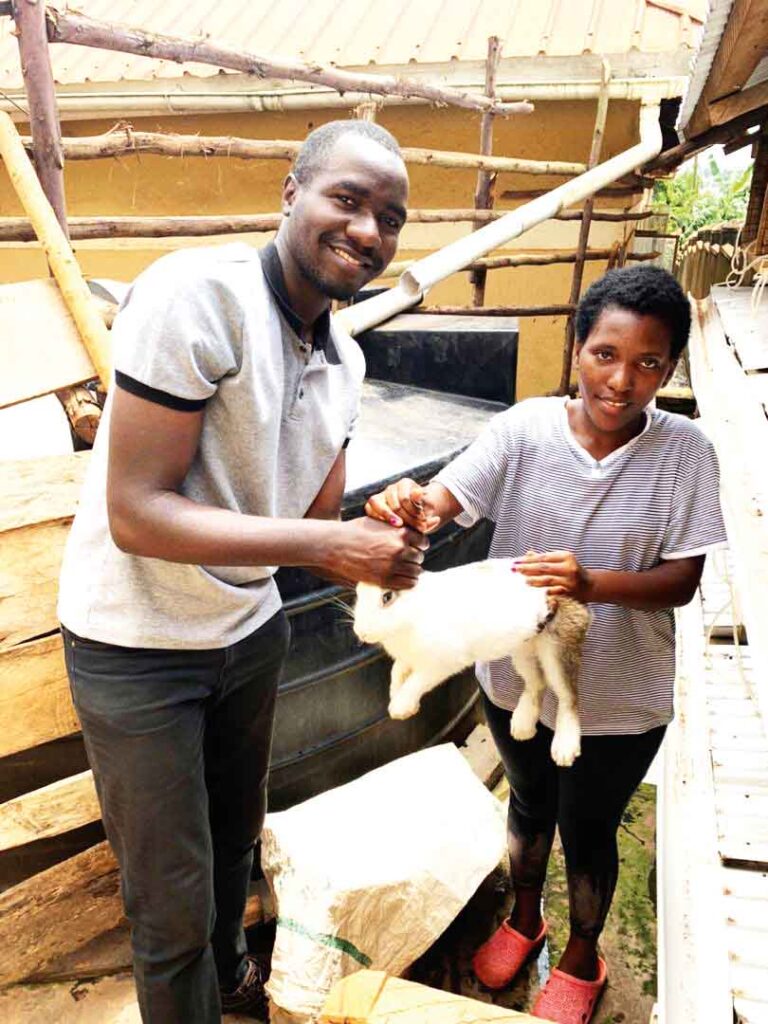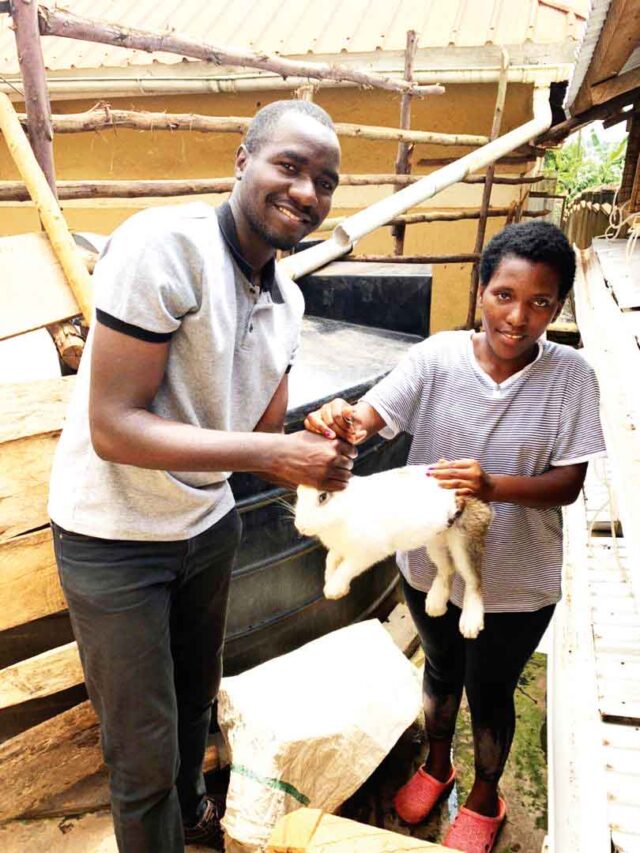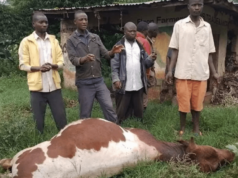Rabbit farming, grouped under cuniculture, is a lucrative business that can be done on either small or large scale, depending on the farmer’s financial capability. While it is not yet so widely adopted among Ugandans, the increasing market for the delicious white meat is driving many farmers like Davis Okoth into the industry. Pauline Akello explores Okoth‘s journey into this form of agriculture.
How it started
In 2016, Okoth and a few of his colleagues spotted a gap and established the Rabbit Firm, a social-entrepreneural venture in Kisoko, Tororo district.
“There was a need to create entrepreneurship opportunities for people in this community,” Okoth says.
To them, rabbit rearing was the best idea due to its cost-effectiveness.
The Rabbit Firm breeds and promotes rabbit rearing among the locals through training children and adults on the best practices, and also buying rabbits from the local farmers.
Okoth says their aim is to encourage education and promote economic empowerment in the community.
They encourage school-going children to rear rabbits and the Firm buys from them.
Cuniculture
Cuniculture is the rearing of micro-livestock involving small animals. It involves breeding, fattening, and raising domestic rabbits as livestock for meat, fur or wool purposes.
Globally, most farmers rear rabbits for meat, though some individuals keep them as pets.
Okoth says having rabbits as pets is dependent on the cultural context.
“In Africa, rabbits are a source of food and that is what we consider them for,” he says.
The Rabbit Firm breeds New Zealand White, which is the most common and preferred breed among consumers.
However, they also rear local and other exotic breeds such as the Giant Chinchilla, English, Angola and Californian White.
Okoth says rabbit meat is so delicious and nutritious. According to him, one can get good meat from a rabbit when it is at least six months or older.
Rabbits have a gestation period ranging between 31 and 33 days.
Female rabbits can become pregnant when they are 12 weeks old and can continue to have babies up to the age of four years.
Unlike most animals, rabbits can conceive at any time of the year. For this reason, if one owns unneutered bucks and does, they need to keep them separate to avoid unwanted pregnancies.

Running the enterprise
Starting a rabbit farm goes beyond building a rabbit hutch and stocking it with rabbits.
For standard quality work, one may need an investment of about one million shillings, especially for setting up the infrastructure.
Okoth says the cost of running a rabbit farm is dependent on the number of rabbits one is rearing. On a small scale, it takes about shillings 700,000 per month.
Many people wonder if rabbits can be reared with other animals. But Okoth says other farmers do so.
“Rabbits are eco-friendly and can be reared with other animals. However, currently we only major in rabbits.”
Management
The daily chores on their rabbit farm include cleaning the rabbit house, gathering weeds and feeds, and adding water to the troughs and tanks.
Rabbit diet entails pellets, water, sometimes vegetable residues and wild weeds.
However, it is not always easy to come by their feeds. Initially, they tried free range before going for cages.
Okoth and his team buy rabbit pellets, but also gather vegetable residues from surrounding communities.
Adult rabbits require 12 to 20 per cent crude proteins in the diet, 15 to 20 per cent fibre, 4 to 70 per cent minerals, and 43 to 50 per cent carbohydrates.
Rabbits also have to be tracked by counting at the closure of each month. Frequent observation is key for the farmer to know the health status of the animals.
Assessment includes paying attention to changes in behaviour such as loss in movement and feeding.
With growing demand, Okoth has employed at least four full-time staff to support him.
He incurs transport cost, especially to deliver the rabbits when bought.
Challenges
Rabbit farmers face challenges such as climatic conditions, and sometimes weather is not favourable, especially during the dry seasons.
He also says expensive medicines and vet services is a big challenge.
Rabbit feed prices are also unpredictable. So, one has to always plan for changes.
“You have to also consider the market. Sometimes demand gets very low and you have to look for people to buy the rabbits,” Okoth says.
Profitability
The advantage of running a rabbit farm above other animals is the ease to practice and the convenience. The demands are manageable.
In terms of sales, Okoth says they have specialized customers and sell a minimum of 25 rabbits per week.
“The cost of operation is manageable since we are planning of scaling business.” At the firm, a rabbit costs between Shs 20,000 and 25,0000.






















